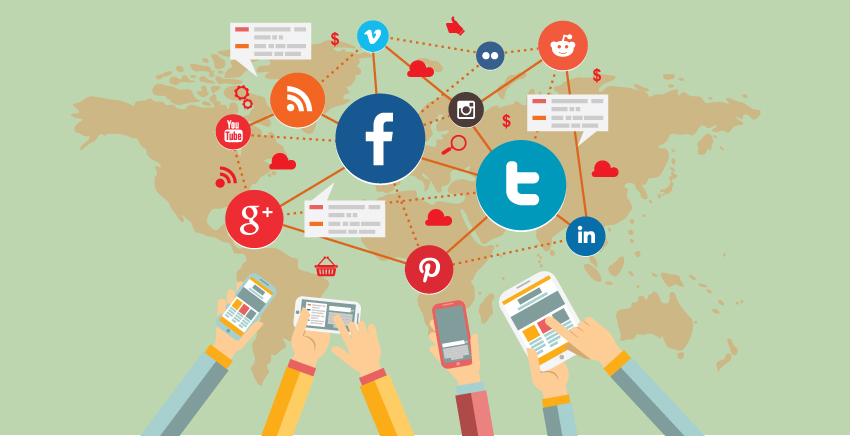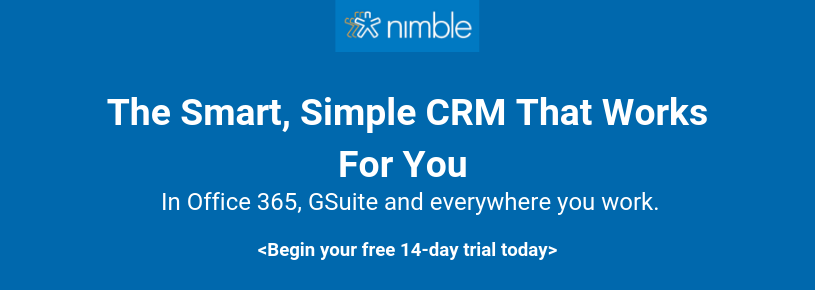As a business owner or a decision-maker in a company, you know how crucial customer relationships can be to success. When a customer is happy and satisfied, they are not only likely to buy more products from you but also tell others about your product when asked for a recommendation. So, implementing a customer relationship management (CRM) system is indispensable.
But with so many CRM systems in the market, how do you choose the right software for your business? Here are ten tips that will point you in the right direction.
1. Define your needs
The first thing you should have in mind is what you need the CRM system to do for you. There are some really powerful CRM solutions out there, packed with a plethora of features. However, most enterprises only end up using less than a tenth of these features.
Before opting for a CRM, make sure the available feature set matches your business needs. Determine if your sales process is in sync with what you have in the system. List the “need to haves” and “nice to haves”; assess how you will use each feature and the possibility of you using it.
2. Integration with marketing
Marketing is the lifeblood of any business. A great CRM system should offer a complete view of each lead, current customers, and previous customers. This includes their related data such as contacts, demographics, products purchased, and margins.
Such data can be harnessed to provide tailored marketing campaigns. It will enable you to do things like; email marketing, build landing pages, score and qualify leads, run multichannel marketing campaigns, and much more.

3. Helpdesk features
If your customer’s concerns are buried in a sea of data and they have to continually follow-up with your business, it shows that you don’t care or you don’t prioritize customer experience at best.
Helpdesk features enable reporting on tickets made, and the duration it takes to resolve them. The tickets are organized based on deadlines, priority, or complexity. There’s a knowledge base for clients interested in self-service options. What’s more, you can interact with customers via phone, email, live chat, and chatbots.
4. Social CRM capabilities
Your team may be producing excellent marketing content – snappy posts, Facebook posts, YouTube videos, and blog posts– but this conversation is one way. CRM software helps you make customer engagement a two-way street.
To grow your social media brand, you may want to invest in a CRM that allows you to monitor brand mentions while providing access to a raft of new information about customer behavior.
By using tracking and monitoring tools, you can see who is engaging in a conversation with your brand, reward brand advocates, and encourage them to spread the word further.
5. Integration and open API
Most companies depend on several applications to execute their business operations throughout the day. It is imperative to choose a CRM that can integrate with other critical business systems. For instance, you can integrate your CRM system with email, e-commerce platforms, accounting software, among other applications.
An open API allows integration with third-party apps and enables you to work with them from within your CRM system. It also syncs data from external apps into your CRM. This way, you have one source of reliable data that the entire business can leverage for decision making.

6. Business growth
Whichever system you opt for, be sure it can scale with your business. It should also be flexible enough to adapt to your changing needs as your enterprise grows and evolves.
Some of the pertinent questions you need to ask yourself here include:
- Can it handle bigger client structures?
- What’s the cost of adding new users?
- Can it scale across markets and currencies?
7. CRM Usability
CRM usability is a critical variable. One of the common complains that you will often hear from sales managers is that some CRM systems are incredibly complex. They have a steep learning curve and often prove difficult for employees to use.
If the system features are not intuitive and easy to use, adoption will be low. When some employees are working on it, and others are not, you lose alignment across teams. Consequently, efficiency and data integrity go out of the window.
On the other hand, having a user-friendly solution that your team can fully take advantage of gives you the best bang for your buck.
8. Mobile-Friendly
If your sales team spends a lot of time in the field, the ability to access information from mobile gadgets is an essential feature to have. Your team should be able to synchronize calendars, access contacts, deals, tasks, events, and analytics from wherever they are.
In this situation, you can increase your ROI by going for CRM systems that offer reliable and user-friendly Android and iPhone apps, without sacrificing desktop features.
9. CRM Pricing
For startups or small businesses, you probably operate on a tight budget. You may not have $2000 or more per month to allocate to all the software tools your business requires to grow. So, you want to find the best CRM system that will meet your needs without breaking the bank. Your best bet here is an all-in-one CRM system, with additional features such as marketing automation and customer support.
Consider a CRM pricing model that would best suit your business. While some providers charge monthly fees, others will require more up-front.
Be on the lookout for hidden costs too. Some providers may offer pricing models that may appear friendly, but need you to pay other fees on the side. Ensure you understand what is covered in the package you sign for.
10. Support and Training
It would not be prudent to check everything else and ignore the after-sales process of your CRM solution provider. Will your provider hand you your login credentials and leave you to figure your way around it? Or will they provide you with after-sales training for set up and implementation?
Most modern CRMs are easy to use and intuitive and don’t require training for basic functionalities. But for companies integrating the CRM with various departments, there will be a need for training. Be sure to check with your solution provider that they will offer support until you fully become operational.
While some providers offer 24/7 support, others may have set hours when the customer service reps are available to assist you. If prompt support anytime you have an issue is very important to you, then you may need to prioritize on availability.
Conclusion
All said and done; a CRM system can help you achieve significant improvement in efficiency, productivity, and revenue growth. The most important thing is to assess your needs and find a solution that will meet those needs.
Here at Nimble, we offer CRM software designed for every kind of business. The CRM has a lot of helpful features that can enable you to generate more leads, get more conversations, and grow your businesses. Contact us today, and we’ll be happy to help you.


